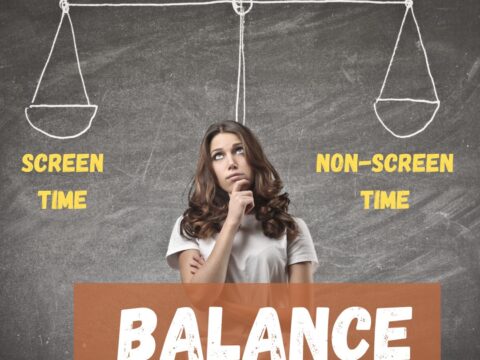As a parent, I fondly remember browsing bookstores with my children. We probably went there with a specific book in mind, one required for school, but ended up taking our time exploring all the tomes available. Though bookstores remain, too often, parents simply buy books online–digitally or print, doesn’t matter–and miss out on that opportunity to discover new worlds.
That’s why when Ask a Tech Teacher contributor, Alex Mitchell, suggested this article–The Future of Physical Bookstores in The Digital Age–I said yes almost before reading it. You’ll find Alex has written a thoughtful analysis of what’s going on with physical bookstores in an ebook era:
The Future of Physical Bookstores in the Digital Age
Brick and mortar bookstores have been a dying breed in recent years. It seems every time we turn around another handful of locations are closing.
When Amazon released the Kindle in 2007 authors began to see the end of times. Worries about cheap, sometimes poorly edited, and often over-saturated eBook markets seemed like they would be the death of the printed word. Another supposed threat to the print book is torrenting and online downloads of materials.
However, in recent years it seems that print books have been selling better and better.
It is surprising, then, that many noted names in the book industry have been hit hard in recent years. People have noticed that there has been a slump in sales for Barnes and Noble, and the company has closed many locations. Additionally, the popular entertainment store Hasting’s was bought and liquidated in 2016 after failing to gain investors during their bankruptcy protection period.
According to Statista, only 20 percent of people say they buy their books in a physical store, and bookstore sales dropped 4 billion dollars from 2010 to 2015.
So, what’s going on? How are the online stores controlling the market? Easy.
Online stores have learned what it takes to be successful – catering to the modern digital world.
How Amazon Dominates Book Sales

Amazon is an absolute beast in the book sales world. The company not only sales a ridiculous number of physical books, but they also have opened 18 real-world bookstores across the United States.
The problem is, the physical locations don’t do nearly as well as the online store. So, what do the online stores have that the physical locations do not?
Searchability
Online retailers help buyers from being overwhelmed by the sheer selection of books out there today. In-store shopping was difficult. You could go to a specific genre, but outside of that, you were typically guessing what might interest you. Sure, some stores had computers to help you search for a title, but they often lacked a friendly interface and were taken or broken more often than not.
Online retail allows you to search books by keywords, authors, topics, genres, and much more. And if the UI doesn’t allow for research, popping open a new internet tab to research further is simple.
Limited Selection
Another big killer of the small bookstore is inventory. Most stores don’t have the space or money to carry multiple hundreds of copies of all their books. This can be frustrating for the shopper who drives out to a location only to find their book is sold out.
Online retailers have the benefit of not causing an inconvenience if they are out of stock, as the shopper didn’t have to leave home. The online shops also tend to know exactly when they will have more stock available.
Anonymity
Another reason online retailers gather more customers is the anonymity of the shopper’s choices. There are plenty of fantastic books out there that cover topics that readers might be embarrassed about.
Maybe the local school teacher doesn’t want all the clerks at the bookstore to know she is into erotic fantasy novels. Maybe the town carpenter doesn’t want you to see him purchasing “Woodworking for Dummies.”
Online stores create a veil for people to express themselves through their choices without risk of judgment.
Is There Any Hope
Yes! There are still stores out there doing well in the bookselling industry. There is a genuine chance that things could turn around for the better if shop owners are willing to implement changes.
Some successful shops have also doubled as internet cafes, which gives them alternate income and provides guests with a way to research books.
Companies also host author events and book readings, which is something online stores can’t offer.
The modern bookstore owner simply needs to focus on the mind of the digital era shopper, make some tweaks, and hopefully the physical book store will reign again.
Author bio:
More on books
Print or Digital Textbooks? What’s the Low-down?
How do I create a classroom library checkout system?
xx
–image credit: https://vpnpro.com/torrenting/book-torrents/
Jacqui Murray has been teaching K-18 technology for 30 years. She is the editor/author of over a hundred tech ed resources including a K-12 technology curriculum, K-8 keyboard curriculum, K-8 Digital Citizenship curriculum. She is an adjunct professor in tech ed, Master Teacher, webmaster for four blogs, an Amazon Vine Voice, CSTA presentation reviewer, freelance journalist on tech ed topics, contributor to NEA Today and TeachHUB, and author of the tech thriller, To Hunt a Sub. You can find her resources at Structured Learning.




































